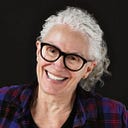Learning how to learn, or learning how to pass tests?
Correctness is not enough.
I’ve been auditing a very popular 4.5 star Coursera course called “Learning how to learn.” It ostensibly uses all of the latest brain research to help people improve their “learning skills.” Yet, even though the lectures in the course are interesting and the research behind the course appears to be sound, I find it difficult to agree that it is a course that helps people learn how to learn.
First, the tests used to determine how well participants have built the learning skills described in this course are actually tests of how well they have learned vocabulary and definitions. As far as I can tell, no skills are involved other than the ability to recall course content. This is problematic. The assumption that learning vocabulary and definitions builds skill is unwarranted. I believe we all know this. Who has not had the experience of learning something well enough to pass a test only to forget most of what they had learned shortly thereafter?
Second, the content in tests at the end of the videos aren’t particularly relevant to the stated intention of the course. These tests require remembering (or scrolling back to) facts like “Many new synapses are formed on dendrites.” We do not need to learn this to become effective learners. The test item for which this is the correct answer is focused on an aspect of how learning works rather than how to learn. And although understanding how learning works might be a step toward learning how to learn, answering this question correctly doesn’t tell us how the participant understands anything at all.
Third, if the course developers had used tests of skill — tests that asked participants to show off how effectively they could apply described techniques, we would be able to ask about the extent to which the course helps participants learn how to learn. Instead, the only way we have to evaluate the effectiveness of the course is through participant ratings and comments — how much people like it. I’m not suggesting that liking a course is unimportant, but it’s not a good way to evaluate its effectiveness.
Fourth, the course seems to be primarily concerned with fostering a kind of learning that helps people do better on tests of correctness. The underlying and unstated assumption seems to be that if you can do better on these tests, you have learned better. This assumption flies in the face of several decades of educational research, including our own [for example, 1, 2, 3]. Correctness is not adequate evidence of understanding or real-world skill. If we want to know how well people understand new knowledge, we must observe how they apply this knowledge in real-world contexts. If we want to evaluate their level of skill, we must observe how well they apply the skill in real-world contexts. In other words, a course in learning how to learn — especially a course in learning how to learn — should be building usable skills that have value beyond the act of passing a test of correctness.
Fifth, the research behind this course can help us understand how learning works. At Lectica, we’ve used the very same information as part of the basis for our learning model, VCoL+7. But instead of using this knowledge to support the status quo — an educational system that privileges correctness over understanding and skill — we’re using it to build learning tools designed to ensure that learning in school goes beyond correctness to build deep understanding and robust skill.
For the vast majority of people, schooling is not an end in itself. It is preparation for life — preparation with tomorrow’s skills. It’s time we held our educational institutions accountable for ensuring that students know how to learn more than correct answers. Wherever their lives take them, all people will do better if equipped with understanding and skill. Correctness is not enough.
[1] FairTest; Mulholland, Quinn (2015). The case against standardized testing. Harvard Political Review, May 14.
[2] Schwartz, M. S., Sadler, P. M., Sonnert, G. & Tai, R. H. (2009). Depth versus breadth: How content coverage in high school science courses relates to later success in college science coursework. Science Education, 93, 5, 798–826.
[3] Kontra, C., Goldin-Meadow, S., & Beilock, S. L. (2012). Embodied learning across the lifespan. Topics in Cognitive Science, 4, 4, 731–739.
